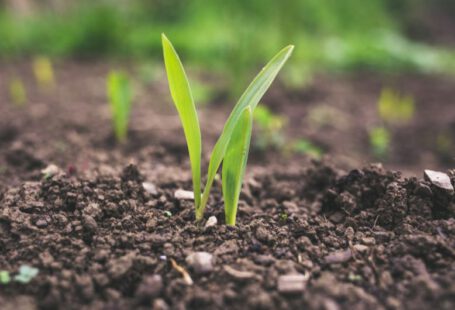Growing your own kitchen herb garden is a wonderful way to add fresh flavors to your dishes while also enhancing the aesthetic appeal of your home. Whether you have a spacious backyard or just a small balcony, creating a herb garden is a rewarding and achievable project. With a little bit of planning and care, you can enjoy a bountiful harvest of fragrant herbs right at your fingertips. Let’s explore some tips on how to grow your own kitchen herb garden successfully.
Selecting the Right Herbs
When it comes to starting your herb garden, the first step is to choose the right herbs to grow. Consider the herbs that you use most frequently in your cooking to ensure that you will benefit the most from your garden. Popular choices for kitchen herb gardens include basil, parsley, mint, thyme, rosemary, and chives. These herbs are versatile, easy to grow, and can thrive in a variety of conditions.
Choosing the Right Location
The success of your kitchen herb garden largely depends on the location where you choose to plant your herbs. Most herbs require at least six hours of sunlight daily, so it’s essential to select a spot that receives an adequate amount of sunlight. If you have limited space, consider container gardening on a sunny windowsill or balcony. Ensure that the area you choose has good drainage to prevent waterlogging, which can lead to root rot.
Preparing the Soil
Herbs generally prefer well-draining soil that is nutrient-rich. Before planting your herbs, make sure to prepare the soil by mixing in some compost or organic matter to improve its quality. If you are planting in containers, use a high-quality potting mix that is formulated for herbs. Avoid using regular garden soil, as it may not provide the proper drainage needed for healthy herb growth.
Planting and Watering
When it’s time to plant your herbs, be gentle with the roots and ensure that each plant is placed at the appropriate depth. Water your herbs immediately after planting and continue to water them regularly, keeping the soil moist but not waterlogged. Herbs like basil and mint prefer consistently moist soil, while herbs like rosemary and thyme prefer drier conditions. Adjust your watering schedule based on the specific needs of each herb.
Fertilizing and Pruning
To promote healthy growth and maximize the flavor of your herbs, it’s essential to fertilize them regularly. Use a balanced, organic fertilizer to provide essential nutrients to your plants. Additionally, pruning your herbs regularly will encourage bushier growth and prevent them from becoming leggy. Harvesting your herbs frequently will also help to promote new growth and keep your plants healthy and productive.
Dealing with Pests and Diseases
Like any garden, your herb garden may encounter pests and diseases that can threaten the health of your plants. Keep an eye out for common pests such as aphids, spider mites, and whiteflies, and take prompt action to control them. You can use organic pest control methods such as neem oil or insecticidal soap to keep pests at bay. Additionally, practicing good garden hygiene and providing proper air circulation can help prevent the spread of diseases.
Enjoying Your Herb Garden
After putting in the effort to grow your kitchen herb garden, it’s time to reap the rewards! Freshly harvested herbs can add a burst of flavor to your culinary creations, whether you use them in salads, soups, sauces, or marinades. Experiment with different combinations of herbs to discover unique flavor profiles that will elevate your dishes to new heights. Remember to harvest your herbs regularly to encourage new growth and enjoy a continuous supply of fresh herbs throughout the growing season.
In conclusion, growing your own kitchen herb garden is a fulfilling and practical way to enhance your cooking skills and enjoy the beauty of nature right at home. By selecting the right herbs, choosing a suitable location, preparing the soil, and providing proper care, you can create a thriving herb garden that will provide you with an abundance of fresh flavors year-round. So roll up your sleeves, get your hands dirty, and start growing your very own kitchen herb garden today!





